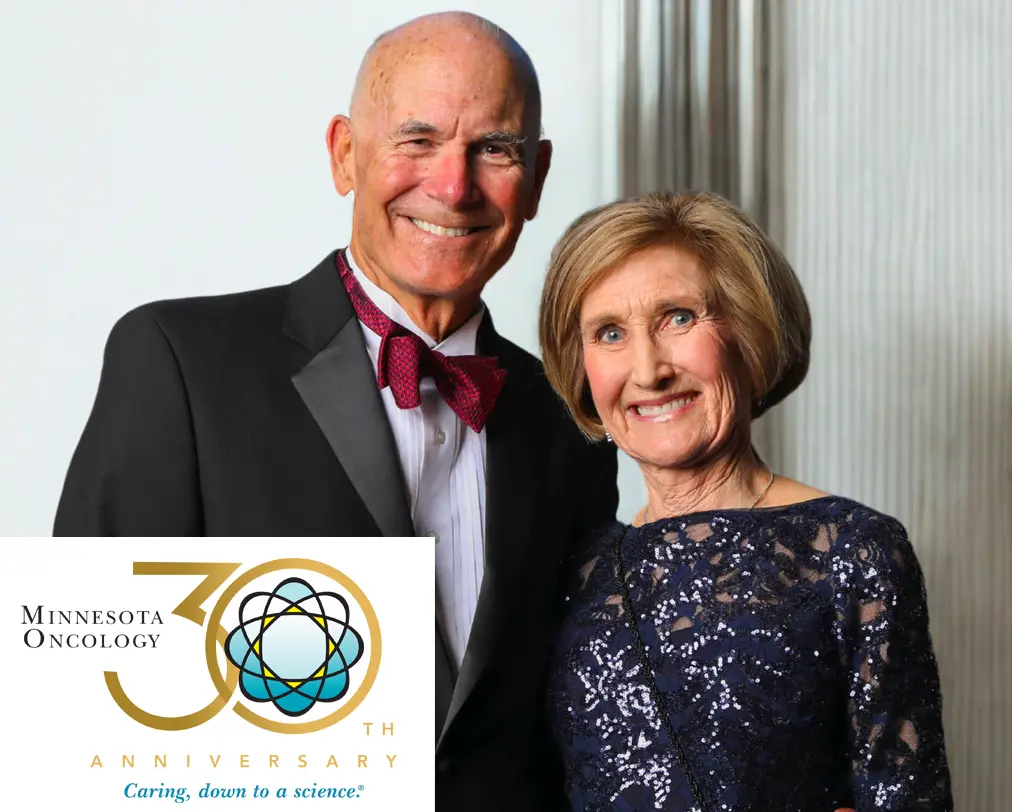{image_1}by Andrzej Petryk, MD
Medical Oncologist & Hematologist
Still in the shadow of public and medical attention, but quite infamous, colorectal cancer is the second leading cause of cancer-related deaths in the United States. The American Cancer Society estimates that 142,820 people were diagnosed with and 50,830 died from colorectal cancer in the United States in 2013, which compares to the annual loss of a city with a population the size of St. Cloud. About 72% of cases arise in the colon and about 28% in the rectum. In order to decrease those numbers, it is important to identify risk factors, to make early diagnosis, and to improve treatment by finding targets that are still hidden from our detection.
Risk factors – the list continues to grow
The average risk of colorectal cancer is one in 20. Our understanding of the molecular pathogenesis of colorectal cancer has been evolving rapidly. Genetic causes can be divided into three groups: (1) sporadic, in which there is no family history of colorectal cancer (70% of patients, particularly men over the age of 50); environmental and dietary factors have been implicated; (2) familial colorectal cancer that is not part of known inherited syndromes (20% of patients), and (3) inherited predisposition to colorectal cancer where patients can present with polyps as a major manifestation of the disease like familial adenomatous polyposis (FAP).
Germline mutations of mismatch repair genes are the underlying cause of many cases of hereditary nonpolyposis colorectal cancer (HNPCC) as well as Lynch syndrome. Tumor suppressor gene mutations like p53 and Rb have been found to be risk factors for both hereditary and sporadic cases of colorectal cancer. In 80% of cases of sporadic colorectal cancer, homozygous APC gene mutation is found, whereas heterozygosity is associated with FAP. Recently, a mutation of the protein PIK3CA has been found to decrease the risk of colorectal cancer when one takes aspirin. Other genetic risk factors include Ras mutation, deletion of DCC, SMAD4, and abnormal signaling of TGF-beta pathway.
Other risk factors for colorectal cancer include ulcerative colitis, Crohn’s disease when colonic mucosa is involved, or radiation therapy. For example, the risk of rectal cancer is increased in patients with prostate cancer who received radiation. New data indicate that people with diabetes have a 40% higher risk of colon and 20% higher risk of rectal cancers.
A diet that comprises a significant amount of red and processed meat and heavy alcohol use can also increase the risk of colorectal cancer. Identification of additional risk factors can help develop better prophylactic and diagnostic measures, and enable early detection of colorectal cancer that translates into better and longer survival of our patients.
Early detection can give your life back
With regular screening, colon cancer can be found early, when treatment is most effective and survival is the longest. In many cases, screening can prevent colon cancer by finding and removing polyps before they become cancer. It is estimated that as many as 50-60% of colorectal deaths could be prevented if all people above age 50 would receive a routine colonoscopy screening. Colorectal screening recommendations should be modified for the family members of people with hereditary colon cancer syndromes, based on personal or family history of colorectal cancer or adenomas; patients who had abdominal or pelvic radiation therapy; and patients with inflammatory disease.
Treatment of colorectal cancer is a moving target
The modern era of colorectal cancer therapy began in the early 1990s when 5-fluorouracyl was approved by the FDA in 1991 for the treatment of metastatic colorectal cancer. Since that time, basic and clinical studies identified more and more targets for therapy. Clinical trials showed that adding chemotherapy after surgery for locally advanced colorectal cancer can improve survival. It was also shown that a combination of chemotherapy and radiation in rectal cancer can improve the outcome. In 1996 irinotecan and in 1998 capcitabine were approved.
In 2002 oxaliplatin was introduced to the treatment options. In the meantime, research showed that epidermal growth factor receptor (EGFR) is involved in the growth of the colorectal cancer, and switching it off can help inhibit growth of the cancer. Based on this result, cetuximab and panitumimab became a part of the therapy for metastatic colorectal cancer in 2004 and 2006, respectively. Introduction of the K-ras mutation test in 2009 allowed identification of patients who do not have the mutation and therefore have a very good chance to respond to EGFR inhibitors. But again, we are 20% off target – the next step is to identify N-ras mutations and additional K-ras mutations responsible for resistance.
The essential role of angiogenesis in tumor growth was first proposed in 1971 by Dr. Judah Folkman. The idea of enhanced abnormal growth of the blood vessels in colorectal tumor was validated and opened the door to bevacizumab (VEGF-A inhibitor) as part of therapy for advanced colorectal cancer in 2004. In 2012 another vascular endothelial growth factor (VEGF) inhibitor, aflibercept, was approved for use (aflibercept also inhibits placental growth factor).
A lot of data indicates a significant role for tyrosine kinases (TKs) in tumor growth. The latest addition to this armamentarium is regorafenib that inhibits TK and VEGF. Next on the horizon is the BRAF mutation as a therapeutic target.
Colorectal cancer is still in the shadows, but increasingly, light is being shined on this disease. In this complex environment, a simple compass can be misleading, and we need a GPS or more to navigate it. There is still a lot of work to be done and lives to be saved.
About Andrzej Petryk, MD: Dr. Petryk practices at Minnesota Oncology’s Maplewood Cancer Center and specializes in colorectal carcinoma, chronic lymphocytic leukemia, and Hodgkin’s and Non-Hodgkin’s Lymphoma. He received his medical degree from the University of Wroclaw in Poland and completed his residency at the University of Massachusetts Memorial Health Care Center and his fellowship at the University of Minnesota. “I believe that each human is unique and deserves a personalized approach to their problem,” Dr. Petryk says. “Therefore, I treat my patients individually, as if they were part of my family.”



